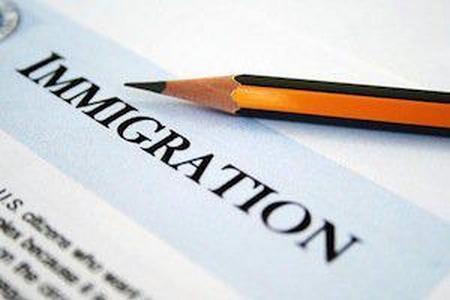The Immigration Appeals Process: A Primer
 Appearing in immigration court can be a frightening process. However, appealing an immigration denial can be even more intimidating, because there are a myriad of details that must be provided for an appeal to have a chance of success. If you are uncertain of how the appeals process progresses, you may make mistakes that can cost you your chance at citizenship or permanent residency.
Appearing in immigration court can be a frightening process. However, appealing an immigration denial can be even more intimidating, because there are a myriad of details that must be provided for an appeal to have a chance of success. If you are uncertain of how the appeals process progresses, you may make mistakes that can cost you your chance at citizenship or permanent residency.
The Board of Immigration Appeals
If you have been denied by an immigration judge, the next step in your case is to appeal to the Board of Immigration Appeals (BIA), which is the highest administrative law body in the country. It is important to know that it is not a court, because the standards for judicial pleadings versus administrative pleadings are very different—most notably, in that administrative hearings are much less formal and corners are more likely to be cut. It is also important to note, however, that the government may also appeal your decision, so even if you are granted status, it may go to the BIA because the government alleges error.
Be advised that this is not an appeal that will take place in person. Everything is conducted by mail, sent to the BIA in Falls Church. This is primarily because this is not a de novo appeal—that is, this is not another opportunity to make your case. BIA appeals are made when one can allege that the immigration judge made a mistake in not granting you status; you may not simply request an appeal because you were denied.
The Court of Appeals
If the BIA does not give you a favorable ruling, it is sometimes possible to file a motion to reconsider or reopen with that body. However, if not, most decisions are appealable to the nearest Federal Court of Appeals—in Illinois, the Seventh Circuit.
The Courts of Appeals can be somewhat daunting to those who have experienced the BIA and the more lax administrative regulations; however, there are extremely specific requirements that must be met. For example, many are unaware that a brief in support must be submitted with your appeal.
Another common misconception is that the filing deadline does not include mailing time. However, it does. Therefore, if your petition does not arrive at the relevant court within 30 days after your Notice of Intent to Appeal is filed, then it will not be accepted.
In addition to BIA appeals, it is also possible to appeal other types of denials at the Court of Appeals level. For example, a denial of citizenship is properly heard by the Court of Appeals. Another common procedure at this level is to file for a writ of mandamus, which is a writ requested when the government has taken an unreasonable amount of time or actively delayed ruling on a question before them.
Seek Experienced Assistance
Appealing an unfavorable immigration ruling is a complex endeavor that often goes better when a professional is involved. The knowledgeable Chicagoland immigration attorneys at Mevorah & Giglio Law Offices are happy to answer your questions and help you get through the long process of trying to obtain a favorable result. Contact our offices today to discuss your options.
 English,
English,
 Spanish,
Spanish,
 Polish,
Polish,
 Urdu
Urdu

















